Andalusian cuisine is the regional cuisine of Andalusia, Spain. Notable dishes include gazpacho, fried fish, the jamones of Jabugo, Valle de los Pedroches and Trevélez, and the wines of Jerez, particularly sherry. Culinary influences come from the historic Christian, Muslim, and Jewish traditions of the region. The oldest known cookbook of Andalusian cuisine, Kitab al tabij fi-l-Maghrib wa-l-Andalus fi `asr al-Muwahhidin, li-mu'allif mayhul, dates from the 13th century.

Andalusian nationalism is the nationalism that asserts that Andalusians are a nation and promotes the cultural unity of Andalusians. In the past it was considered to be represented primarily by the Andalusian Party, but the party disbanded in 2015. In 2021, the left-wing Andalusian nationalist party Adelante Andalucía was formed, obtaining representation in the 2022 regional election.
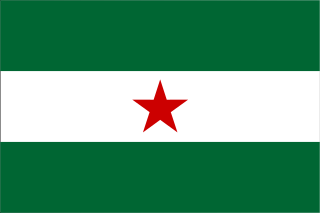
Andalusian Nation is an Andalusian nationalist, independentist and socialist political party in Andalusia (Spain). Its organ of expression is the magazine Independencia. NA is a founding member of the former coalition National Assembly of Andalucía, which the organization left in 2004.

The Statute of Autonomy of Andalusia is a law hierarchically located under the 1978 Constitution of Spain, and over any legislation passed by the Andalusian Autonomous Government. During the Spanish transition to democracy, Andalusia was the one region of Spain to take its path to autonomy under what was called the "vía rápida" allowed for by Article 151 of the 1978 Constitution. That article was set out for regions like Andalusia that had been prevented by the outbreak of the Spanish Civil War from adopting a statute of autonomy during the period of the Second Spanish Republic. Following this procedure, Andalusia was constituted as an autonomous community February 28, 1980. The regional holiday of the Andalusia Day commemorates that date. The statute was approved the following year by the Spanish national government.
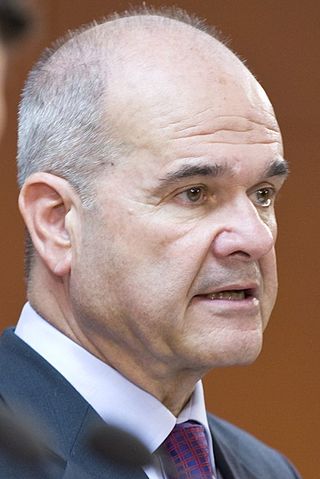
The 2000 Andalusian regional election was held on Sunday, 12 March 2000, to elect the 6th Parliament of the autonomous community of Andalusia. All 109 seats in the Parliament were up for election. The election was held simultaneously with the 2000 Spanish general election.
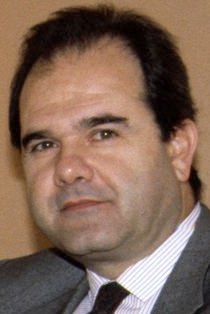
The 1996 Andalusian regional election was held on Sunday, 3 March 1996, to elect the 5th Parliament of the autonomous community of Andalusia. All 109 seats in the Parliament were up for election. The election was held simultaneously with the 1996 Spanish general election.

The 1994 Andalusian regional election was held on Sunday, 12 June 1994, to elect the 4th Parliament of the autonomous community of Andalusia. All 109 seats in the Parliament were up for election. The election was held simultaneously with the 1994 European Parliament election.

The 1986 Andalusian regional election was held on Sunday, 22 June 1986, to elect the 2nd Parliament of the autonomous community of Andalusia. All 109 seats in the Parliament were up for election. The election was held simultaneously with the 1986 Spanish general election.

The 1982 Andalusian regional election was held on Sunday, 23 May 1982, to elect the 1st Parliament of the autonomous community of Andalusia. All 109 seats in the Parliament were up for election.
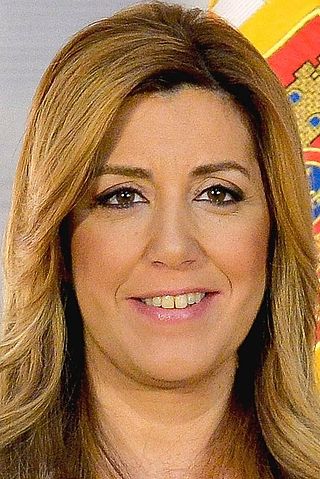
The 2015 Andalusian regional election was held on Sunday, 22 March 2015, to elect the 10th Parliament of the autonomous community of Andalusia. All 109 seats in the Parliament were up for election.

María Teresa Rodríguez-Rubio Vázquez is a Spanish politician. Active in United Left in her youth within the platform Espacio Alternativo, in 2008 the organization split from IU. She then participated in the creation of Izquierda Anticapitalista, later renamed as Anticapitalistas. She was a Member of the European Parliament representing Podemos from 2014 to 2015, and was the party's presidential candidate for the 2015 and 2018 Andalusian parliamentary elections. She left Podemos in 2020 and founded the Adelante Andalucía party, being elected to the Parliament of Andalusia in 2022 and leaving her seat at the end of the year.

Andalusian Left is an Andalusian nationalist and socialist political party in Andalusia. The party is currently inactive.

The 1980 Catalan regional election was held on Thursday, 20 March 1980, to elect the 1st Parliament of the autonomous community of Catalonia. All 135 seats in the Parliament were up for election. This was the first regional election to be held in Catalonia since the Spanish transition to democracy and the second democratic regional election in Catalan history after that of 1932.
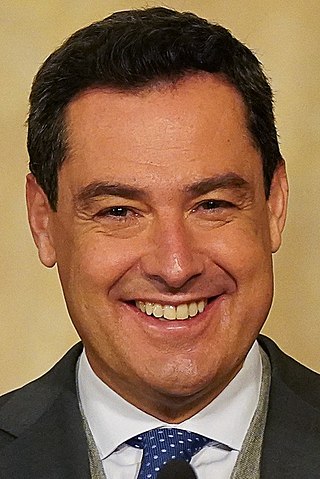
The 2022 Andalusian regional election was held on Sunday, 19 June 2022, to elect the 12th Parliament of the autonomous community of Andalusia. All 109 seats in the Parliament were up for election.

Juan Antonio Marín Lozano is a Spanish businessman and politician. He first took office in the 2007 local elections in which his local independent group was elected to the city council in his hometown of Sanlúcar de Barrameda in the Province of Cádiz. He served as deputy mayor until 2015, in government with the Spanish Socialist Workers' Party (PSOE).
A referendum on the initiative of the Andalusian autonomy process was held in Andalusia on Thursday, 28 February 1980. Voters were asked whether they ratified a proposed initiative for the provinces of Almería, Cádiz, Córdoba, Granada, Huelva, Jaén, Málaga and Seville to organize themselves into an autonomous community of Spain throughout the legal procedure outlined in Article 151 of the Spanish Constitution of 1978.
A referendum on the approval of the Andalusian Statute of Autonomy was held in Andalusia on Tuesday, 20 October 1981. Voters were asked whether they ratified a proposed Statute of Autonomy of Andalusia bill organizing the provinces of Almería, Cádiz, Córdoba, Granada, Huelva, Jaén, Málaga and Seville into an autonomous community of Spain. The final draft of the bill had been approved by the Andalusian Assembly of Parliamentarians on 1 March 1981, but it required ratification through a binding referendum and its subsequent approval by the Spanish Cortes Generales, as established under Article 151 of the Spanish Constitution of 1978. The referendum was held simultaneously with a regional election in Galicia.

Andaluces Levantaos was an Andalusian-based electoral alliance formed by Más País, Andalucía por Sí (AxSí) and Andalusian People's Initiative (IdPA) to contest the 2022 Andalusian regional election. The alliance aimed at representing ecologist, feminist and social democratic voters.

Por Andalucía is an Andalusian-based electoral alliance formed by Podemos, United Left/The Greens–Assembly for Andalusia (IULV–CA), Equo, Green Alliance (AV), Más País and Andalusian People's Initiative (IdPA) to contest the 2022 Andalusian regional election. The alliance was launched after over two months of negotiations between the parties to the left of the Spanish Socialist Workers' Party of Andalusia (PSOE–A), in an attempt to form a joint list that avoided wasted votes; however, both the new Adelante Andalucía party of Teresa Rodríguez, as well as the Andalusian Andalucía por Sí (AxSí)—which had been a founding member of the Andaluces Levantaos alliance between Más País, IdPA and itself—rejected joining in.

Juan Pizarro Navarrete was a Spanish physician and politician from the region of Andalusia. A member of the People's Party, Pizarro represented the Province of Jaén in the Congress of Deputies from 1991 until 1993 and in the Parliament of Andalusia from 2000 until 2012. Pizarro also served as mayor of Úbeda from 1995 to 1999 and from 2003 to 2007.















